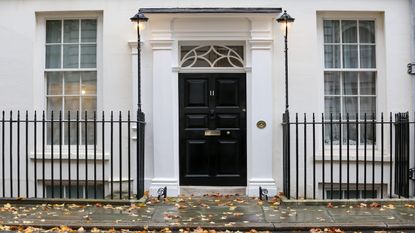When is the Spring Budget and what to expect
The Spring Budget is set to take place on 15 March. We look at what has already been revealed, plus the tax changes and new policies the chancellor is expected to announce.


Jeremy Hunt will present his Spring Budget on Wednesday (15 March) marking his second fiscal statement since becoming chancellor.
Experts believe the focus of the Spring Budget will be on how the government plans to get the economy growing faster - one of prime minister Rishi Sunak’s five priorities - and that short-term tax cuts are unlikely, as this could fuel inflation.
The government has already made some announcements around pensions, childcare and even pre-payment meters over the last couple of days.
Subscribe to MoneyWeek
Subscribe to MoneyWeek today and get your first six magazine issues absolutely FREE

Sign up to Money Morning
Don't miss the latest investment and personal finances news, market analysis, plus money-saving tips with our free twice-daily newsletter
Don't miss the latest investment and personal finances news, market analysis, plus money-saving tips with our free twice-daily newsletter
In January, Hunt reiterated the importance of employment and tackling economic inactivity, helping more people into work and filling the vacancies in the jobs market.
He also outlined ambitions to help more disabled people and those with mental illnesses into work, and a pensions system that encourages continued workforce participation.
Some of these were confirmed as themes in the chancellor’s Spring Budget over the weekend. There is also speculation the Budget could contain a few sweeteners like postponing April’s Energy Price Guarantee hike and extending the fuel duty cut, as well as some less welcome announcements such as speeding up the state pension age rise to 68.
We look at what Hunt could reveal on Budget day, and how it could impact your personal finances.
What we know so far
The Treasury issued a series of announcements this weekend confirming some of the policies we can expect Hunt to announce on Wednesday.
It said Hunt’s “back to work” Budget will be aimed at boosting the economy by “removing barriers to people getting into work”.
One of these includes an increase in the lifetime pensions allowance. The lifetime pensions allowance is also expected to go up, allowing saver to accumulate up to £1.8 million over a lifetime into pension savings - up from £1.07.
Other changes will focus on disabled people and those with long-term health conditions, over 50s, low-earners and parents on Universal Credit.
Parents will be paid Universal Credit childcare support up-front when moving into work or increasing their hours, rather than in arrears, in the hopes this will remove a barrier that prevents them from returning to work.
The amount parents on universal credit can receive in childcare is also increasing “by several hundred pounds”.
“Benefit claimants are expected to be encouraged to move into work or increase their hours, through changes to the Universal Credit system and increased job support programmes,” HM Treasury said.
Additionally the government said the chancellor is expected to end the prepayment meter premium. Currently those on prepayment meters pay £45 more on average compared to direct debit customers, but this will end from 1 July.
The chancellor is also expected to crack down on those selling tax avoidance schemes, HM Treasury said.
What we can expect
Tax cuts are unlikely
The general mood leading up to next week’s Budget is that we’re unlikely to see many tax cuts. And any that we do see will probably not come into effect immediately.
As Chris Etherington, tax partner at the accountancy firm RSM, puts it: “Tax cuts may yet be announced in the Spring Budget, but it seems likely these will be long-term promises that are unlikely to provide any immediate relief for taxpayers.”
Sunak previously pledged to lower the basic rate of income tax. During last year’s Conservative leadership contest, Sunak said he would seek to follow through with his promise to reduce the rate from 20% to 19% in 2024, and to 16% by the end of the next parliament in 2029.
However, there is now growing doubt over whether this will happen. HMRC recently published figures showing the estimated cost of cutting the basic rate to 19% for the 2024/25 financial year had increased from £6.4bn (the estimate in June 2022) to £6.85bn (last month’s estimate). The rise is due to fiscal drag and the freezing of tax thresholds.
The latest figures from HMRC show “just how lucrative the government’s freeze on tax allowances and thresholds is likely to be”, says Rachael Griffin, tax and financial planning expert at the wealth manager Quilter, which could further discourage the chancellor from announcing any surprise tax cuts.
Fiscal drag “is exactly what the government had been banking on when the chancellor confirmed the freeze on income tax thresholds during his Autumn Statement… as more people move up the income tax bands while thresholds remain unchanged, the healthier government coffers will become,” adds Griffin.
“With the Spring Budget fast approaching, the chancellor will be pleased that the changes he announced during his last statement are already having the desired effect - particularly as the reduction of the additional rate of income tax threshold is yet to come into play.”
Energy bill support
The Energy Price Guarantee (EPG) currently limits the average annual household bill to £2,500. This will rise to £3,000 on 1 April.
The increase will put pressure on households struggling to pay for gas and electricity bills, who are also being squeezed by high inflation.
However, following pressure from more than 85 charities and organisations to postpone next month’s EPG hike, there are reports the government has listened and the rise will be delayed by at least three months. This means the EPG would be kept at the current £2,500 level until at least July.
“It’s pretty much nailed-on that the rise in the energy price guarantee from £2,500 to £3,000 in April will be shelved,” says Sarah Coles, head of personal finance at Hargreaves Lansdown. “This is going to come as a huge relief for the 48% of people who are already finding it difficult to pay the bills, and the 6% who have fallen behind.”
In an interview with Channel 5 the chancellor said he was “not going to confirm anything about the budget… But we look at all sorts of options, always within the context of being responsible with people’s money, with public finances”.
Potential state pension age increases
The state pension age is being reviewed, and there are reports that any change to the age could be announced in the forthcoming Budget.
At the moment, the age at which you can claim your state pension is 66 for both men and women. It will gradually increase to 67 by 2028, before going up slowly to 68 between 2044 and 2046.
But the review into the state pension age could recommend that the increase to 68 be speeded up, and come into effect in the mid-2030s.
Tom Selby, head of retirement policy at the investment platform AJ Bell, said that “bringing forward the increase could be a huge money spinner, likely raising tens of billions in revenue”. On the other hand, “telling millions of people they will have to wait longer for their pension might prove the final nail in the coffin of the Conservatives’ hope of winning the next general election”, said Selby.
Bear in mind that even if there is no announcement in the Budget about the state pension age, the government has said it will publish the review by May, so it’s only a matter of time before we hear about any changes to when you can claim your pension.
Fuel duty could be extended
Last spring, a 5p cut per litre to fuel duty was announced, which is due to finish at the end of March 2023.
There is speculation that Hunt could extend it for another year, which would be welcome news for drivers dealing with high pump prices.
However, the Social Market Foundation, a thinktank, cautioned against extending the fuel duty freeze, saying it would mean a loss of £5.5 billion each year to the public finances.
The SMF said: “Freezing fuel duty again would obstruct the UK’s commitments to net zero transport and would hardly help out the most vulnerable. Instead of handing £5.5 billion a year for motoring, that money could be used to provide new buses and rail hubs for rural communities, alternatives for those stuck in expensive car ownership and finance green industrial growth.”
What is the Spring Budget?
The Spring Budget is a fiscal statement where the chancellor provides an update to parliament - and to the public - on the state of the UK economy, and announces plans for spending and taxation.
Accompanying the statement is a forecast from the Office for Budget Responsibility (OBR), which analyses the impact of government policies and gives predictions for the future health of the economy.
There is normally one Budget each year, plus another fiscal statement, for example a Spring Budget and an Autumn Statement.
Hunt’s Spring Budget follows the Autumn Statement in November, which attempted to calm markets and plug the widening hole in public finances by reversing some of the tax cuts in his predecessor Kwasi Kwarteng’s disastrous mini-Budget.
When is the Spring Budget?
Jeremy Hunt will unveil his Spring Budget on Wednesday, 15 March 2023. The Budget speech is usually read out to parliament at around 12.30pm, following prime minister's questions.
As well as the speech, there is a lengthy budget document containing detailed policy changes, and the costs involved. There are also consultations and policy papers published on the Treasury website.
Ruth is passionate about helping people feel more confident about their finances. She was previously editor of Times Money Mentor, and prior to that was deputy Money editor at The Sunday Times.
A multi-award winning journalist, Ruth started her career on a pensions magazine at the FT Group, and has also worked at Money Observer and Money Advice Service.
Outside of work, she is a mum to two young children, a magistrate and an NHS volunteer.
-
-
 Investment trust discounts hit 2008 levels. Here’s how to profit
Investment trust discounts hit 2008 levels. Here’s how to profitInvestment trust discounts have risen to levels not seen since 2008, here are three trusts looking to buy to profit.
By Rupert Hargreaves Published
-
 A luxury stock to buy at a high street price
A luxury stock to buy at a high street priceInvestors wrongly consider Watches of Switzerland a high-street outlet.
By Dr Matthew Partridge Published
-
 UK wage growth hits a record high
UK wage growth hits a record highStubborn inflation fuels wage growth, hitting a 20-year record high. But unemployment jumps
By Vaishali Varu Published
-
 UK inflation remains at 8.7% ‒ what it means for your money
UK inflation remains at 8.7% ‒ what it means for your moneyInflation was unmoved at 8.7% in the 12 months to May. What does this ‘sticky’ rate of inflation mean for your money?
By John Fitzsimons Published
-
 VICE bankruptcy: how did it happen?
VICE bankruptcy: how did it happen?Was the VICE bankruptcy inevitable? We look into how the once multibillion-dollar came crashing down.
By Jane Lewis Published
-
 Would a food price cap actually work?
Would a food price cap actually work?Analysis The government is discussing plans to cap the prices of essentials. But could this intervention do more harm than good?
By Nicole García Mérida Published
-
 What is Warren Buffett’s net wealth?
What is Warren Buffett’s net wealth?Features Warren Buffett is one of the world’s richest people. But how did he make his money?
By Jacob Wolinsky Last updated
-
 What is Rihanna's net worth?
What is Rihanna's net worth?Features Rihanna became the youngest self-made billionaire in 2022. Here’s how she made her money.
By Jacob Wolinsky Published
-
 UK inflation slides to 8.7% - what does it mean for your money?
UK inflation slides to 8.7% - what does it mean for your money?News Inflation has dropped below 10% for the first time in months, but with food prices at a 45-year high, is this good news and what does it mean for your money?
By Tom Higgins Published
-
 What is Bill Gates's net worth?
What is Bill Gates's net worth?Features Bill Gates is one of the world’s richest people, but how did he make his money?
By Jacob Wolinsky Last updated









